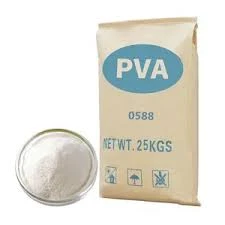HPMC for Industrial Applications A Versatile Polymer Solution
Hydroxypropyl Methylcellulose (HPMC) is a non-ionic, water-soluble polymer derived from cellulose, which has gained significant traction in various industrial applications. Its unique properties, including film-forming ability, thickening, binding, and emulsifying characteristics, make it a versatile additive across multiple sectors such as construction, pharmaceuticals, food, cosmetics, and personal care.
Construction Industry
In the construction sector, HPMC plays a crucial role as an essential ingredient in mortars, tile adhesives, and other cement-based materials. Its water-retention capabilities allow for prolonged workability without compromising the strength and durability of the final product. This is particularly important in hot and dry conditions where moisture evaporation can lead to cracking and reduced strength. HPMC not only enhances adhesion but also acts as a thickening agent, ensuring a smoother application and improved aesthetics of the surface finish.
Moreover, HPMC contributes to the plasticity and workability of construction mixtures, making it easier for professionals to handle materials during the application process. Its lightweight properties and low viscosity enable it to be easily mixed and dispersed, which is a significant advantage in modern building projects.
Pharmaceutical Applications
In the pharmaceutical industry, HPMC functions primarily as a binder and controlled-release agent in tablet formulations. Due to its biocompatibility and non-toxic nature, it is widely used in the formulation of both immediate-release and sustained-release drugs. HPMC helps in maintaining the integrity of the tablet during processing and enhances the dissolution rate of the active ingredients, thereby improving the bioavailability of the medications.
Additionally, HPMC is effective in producing film coatings for tablets, offering protection from environmental factors, enhancing aesthetic appeal, and masking unpleasant tastes. Its film-forming capabilities are particularly beneficial in the delivery of sensitive compounds that require protection against moisture and light.
hpmc for industrial

Food Industry
In the food industry, HPMC serves a dual purpose as both a thickener and an emulsifier. It is used in a variety of applications, ranging from sauces and dressings to bakery products and dairy items. Its ability to improve texture and mouthfeel has made it a popular choice in formulating gluten-free products, where maintaining structure and moisture is essential. HPMC also assists in stabilizing emulsions, preventing separation and ensuring the consistency of food products.
Cosmetics and Personal Care
HPMC's unique characteristics have positioned it as a favorable ingredient in cosmetics and personal care products. Its ability to retain moisture makes it an effective humectant, which is beneficial for skin hydration. It is commonly utilized in lotions, creams, and gels, contributing to the smooth application and absorption of these products.
Furthermore, HPMC acts as a stabilizer in emulsions, ensuring the uniform dispersion of ingredients and the consistency of the product. Its role in providing viscosity enhances the sensory experience of cosmetic formulations, making them more appealing to consumers.
Conclusion
The versatility of HPMC across various industrial sectors underscores its importance as a multifunctional polymer. From enhancing the performance of construction materials to improving drug delivery systems, stabilizing food products, and refining cosmetic formulations, HPMC's broad range of applications is a testament to its adaptability and efficacy. As industries continue to evolve and demand innovative solutions, HPMC is poised to play an even more significant role in driving advancements and enhancing product performance across multiple domains. Its sustainable nature, along with its efficiency, makes it a vital component in the manufacturing processes of the future.
-
Rdp Powder: Key Considerations for Wholesalers in the Building Materials IndustryNewsJul.08,2025
-
Key Considerations for Wholesalers: Navigating the World of Hpmc - Based ProductsNewsJul.08,2025
-
Hpmc Detergent: Key Considerations for WholesalersNewsJul.08,2025
-
Key Considerations for Wholesalers: China Hpmc For Tile Adhesive, Coating Additives, Concrete Additives, and MoreNewsJul.08,2025
-
Crucial Considerations for Wholesalers: Navigating the World of Construction MaterialsNewsJul.08,2025
-
Key Considerations for Wholesalers Sourcing Additive For Cement, Additive For Concrete, Additive For Putty from Additive Manufacturer Shijiazhuang Gaocheng District Yongfeng Cellulose Co., Ltd.NewsJul.08,2025




